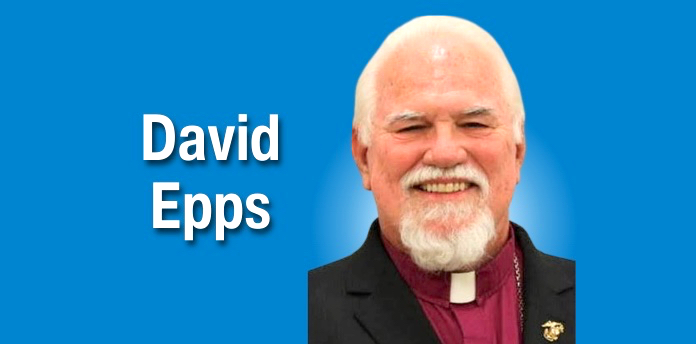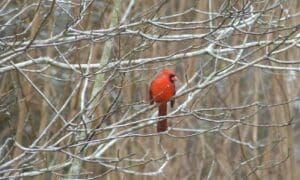Appalachian people are a hearty breed. Most come from Scotch-Irish descent, and many have made their living in those mountains from the 1600-1700s. They are proud, independent folks who realize that much of the nation has a low regard for them. But being who they are, they don’t care. As a whole they are a God-fearing people who work hard to provide for their families. I am a product of Appalachia.
Appalachian people almost never ask for help, except from family or, perhaps, neighbors. Many have multiple skills. My own father was an electrician by trade, but he was also skilled at carpentry, masonry, plumbing, fence building, concrete, painting, gunsmithing, and roofing. He also held a federal firearms license and was an artist. Multiple skills.
My ancestral family came to Tennessee from North Carolina in the decades before the War Between the States. Prior to that, they migrated from Virginia, where they arrived in the 1600s, from England, to North Carolina. Other branches of those Virginians moved north and west.
Being independent, they fought on both sides of what is erroneously called “the Civil War.” One of my great-great-grandfathers was a Confederate soldier who was captured at the Battle of Bean’s Station in eastern Tennessee and spent time in a prisoner of war camp in Louisville, KY.
Another great-great-grandfather was a Union soldier who was killed at the Battle of Petersburg in Virginia, where I would be stationed at Fort Lee over a century later. Like I said, independent people.
There are a considerable number of difficulties that Appalachian people face and many obstacles to overcome. These are expected. What they do not expect is a hurricane that formed in the Gulf of Mexico to rage north overland hundreds of miles and visit destruction and death upon those mountains.
In eastern Tennessee, twelve have died and fifteen and still missing. But in western North Carolina, thus far, ninety-six are dead and twenty-six are still missing. If the missing are presumed dead, that means that one hundred and forty-four people were killed in a region that never expects hurricanes. Ever.
It is highly possible that many, if not most, of the missing will never be found because of the mudslides, destruction, and swollen rivers.
I am from the affected region. I am an east Tennessean who grew up five miles from the Virginia state line and about forty miles from western North Carolina. The first church I served as pastor was in Carter County that saw massive flooding.
In Unicoi County, near where I went to university, the town was just wrecked by the floods. In Chuckey, Tennessee where I served a United Methodist Circuit, damage was severe. My wife’s parents, for years, had a mountain home in those western North Carolina mountains. Recently, our church in Knoxville, Emmaus Abbey, sent disaster relief to Kingsport, Tennessee. Kingsport is my hometown.
Almost all the roads from Tennessee into North Carolina are closed, washed out by the hurricane, even I-40 and I-26, the two interstate highways.
In Senoia, GA, where I live, after a couple of hours of rain from the hurricane, I put out a vessel to measure rainfall. In a twenty-four-hour period, the receptacle captured thirteen inches of rainfall.
Fortunately, I do not live on a mountain or in a valley. In the mountains, all that rainfall fell into the rivers, lakes, and streams and fell on the mountains where they rushed down into the valleys in sheets of water, uprooted trees, and mud to cause the death and chaos seen in videos and news reports. The financial and psychological impact is enormous.
I always grieve when I learn of tragedies. This one, however, hits close to home. These are my people.
I was raised by and among these people. Their will to endure and overcome is strong. When their ancestors arrived in these mountains, they scraped and clawed their living out of those hills and fed and clothed their families.
They hunted, they fished, and they farmed. They built their own homes. They endured the taunts of “hillbilly” and the scorn of those who thought themselves their betters and, with quiet determination and pride, set themselves to build a life. Many of those who endured the recent cataclysm, at least those who survived, will follow the examples of their forebears, and start over.
There was a time when I was ashamed of my heritage. I didn’t want people to know that some of my family still used outhouses or drove very used cars or lived in working class neighborhoods. I was ashamed of my twangy mountain accent and worked hard to lose it. When I heard my first sermon on tape, my thought was, “Oh my God! I’m a hick!”
And then I grew up. Somewhere along the way, I realized the dedication, the hardiness, the commitment, the graciousness and goodness of these, my neighbors and family members. I became ashamed of myself. I became proud of my heritage and proud of all my family members.
These Appalachian people, so terribly touched by tragedy, will survive and eventually thrive. It’s what they do. I am proud to be from Appalachian stock. This is my family. These are my people.
[David Epps is the Rector of the Cathedral of Christ the King. Worship services are on Sundays at 10:00 a.m. and on livestream at www.ctk.life. He is the bishop of the Diocese of the Mid-South (www.midsouthdiocese.life). He has been a weekly opinion columnist for The Citizen for over 27 years. He may be contacted at [email protected].]













Leave a Comment
You must be logged in to post a comment.